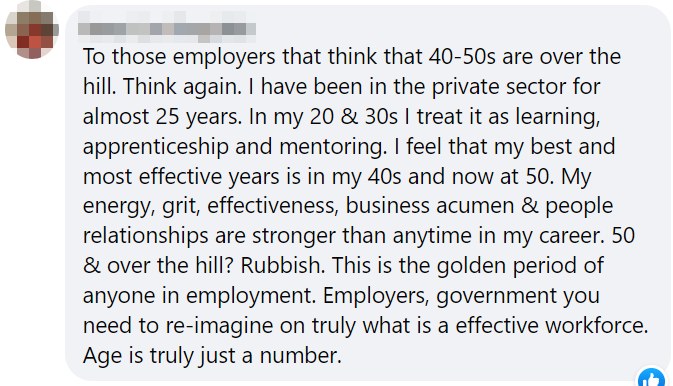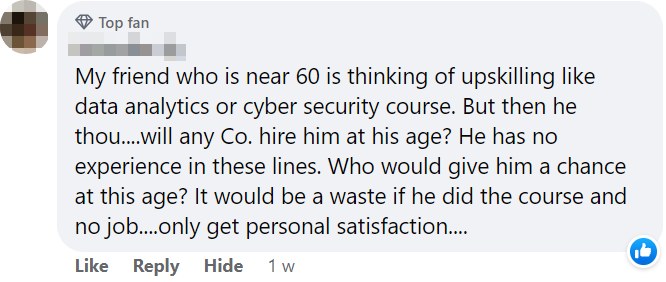This piece is part of MS Speaks, a segment in which MS News reporters share their honest views on current affairs and trending topics.
Singapore Should Value Experienced Mid-Career Workers More
Singapore’s ageing population means that the proportion of residents aged 65 and above is increasing.
One would think that practices would change to adapt to the demographic, but some mid-career workers don’t seem to think so.
After a full-time Grab driver took to Facebook to lament a lack of job opportunities, others chimed in with their own opinions.
Full-Time Grab Driver With NUS Degree Claims Older & Qualified S’poreans Lack Job Opportunities
While the responses were diverse, many noted how the value of an employee tends to decline after a certain age.
Companies tend to go for fresher talent
As the term suggests, mid-career workers are those who’ve spent a substantial amount of time in the workforce, typically in a specific field.
At a certain point in their lives, possibly in their 40s or 50s, some may consider a switch before making that final lap toward retirement.
But despite all the experience they’ve accumulated, such a change isn’t always as easy as one would think.
Entering a whole new playing field, they’re competing with eager fresh grads who can accept relatively lower pay while offering companies fresh ideas and youthful energy.
The choice for employers then becomes simple — take the younger candidate for greater returns on investment. They know how most software work, they’re familiar with current trends, and can seamlessly fit into a modern work environment.
With career landscapes quickly altering to catch up with a technologically advanced and psychologically aware society, mid-career workers struggle to find somewhere they can fit in.
Everything they’ve known for decades may not always apply anymore and learning anew will only take up too much time.
Not easy for mid-career workers to start over
Sure, one can argue that competition shouldn’t be an excuse. There are countless ways to upskill and upgrade ourselves.
But one must remember that many mid-career workers still have families to feed and children whose education they have to finance.
Attending courses eats away at their already meagre personal time, which they may use to manage family matters.
Even if they do somehow find a way to balance everything, what guarantee will there be that they can land the job?
One Facebook user puts it well, citing an example from a friend in his late 50s:
He allegedly weighed the benefits of registering for a course before deciding against it, aware that employers may not give him a chance at his age.
The learning then becomes a personal instead of professional gain, as it doesn’t open new windows of opportunity.
Those who do stand a chance may then find themselves facing an age-old perception — that they’re old and thus “cannot make it” even with training.

Source: Facebook
However, studies have shown that the human brain has the extraordinary ability to “learn and master many new skills” regardless of age, notes the BBC.
Though elderly folks’ brains may be slower, another study cited by The Economic Times claims that it’s only because they already know so much.
Don’t write off mid-career professionals too quickly
Having a gold mine of knowledge and experiences is therefore what sets mid-career professionals apart.
They know work procedures better and can handle work crises or make split-second decisions without much hesitation.
Sure, they’d need time to adapt to a new role in a different company. But most of them are more than able to.
As one netizen says, their 40s and 50s are their “best and most effective years” at work. This is because they’ve spent their early years in apprenticeship, learning and eventually mentoring others.

Source: Facebook
Unlike their younger counterparts with the shiny paper qualifications, these folks know how to work in the real world — something only time and experience can teach.
Of course, company fit is important too, but employers should place potential hires on a level playing field.
If two candidates of different ages go head-to-head, find one deciding factor based on what they can offer. Not their age.
That way, older professionals can feel more confident about exploring new job opportunities and sharing their knowledge. At the end of the day, everyone stands to benefit — the company, the older employee and the younger staff who can learn on the job.
Note: The views expressed within this article are the author’s own.
Have news you must share? Get in touch with us via email at news@mustsharenews.com.
Featured image adapted from @jonqsbf on Unsplash.









